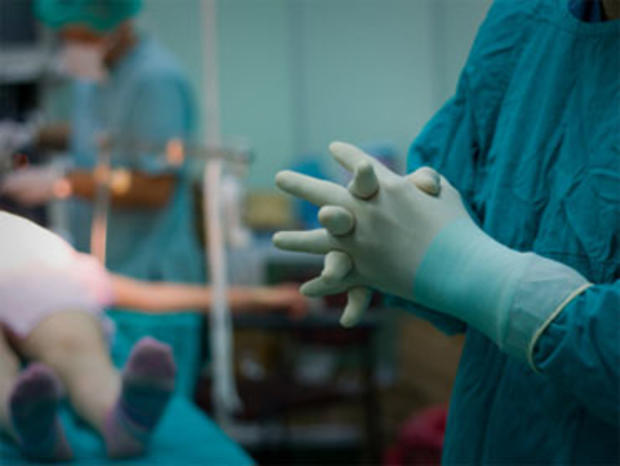Overtesting in ERs? Lawsuit Fears Lead to Needless Care, Patients Pay Price
(CBS/AP) The emergency room is a terrible place to be, unless you're a lawyer.
According to an Associated Press report that looks at overtesting in the ER, doctors are under enormous pressure to order medical tests and treatments even for what are likely to be harmless chest pains, run-of-the-mill head bumps, and non-threatening stomachaches.
And many ER doctors say the No. 1 reason is fear of malpractice lawsuits. "It has everything to do with it," said Dr. Angela Gardner, president of the American College of Emergency Physicians.
The result can be extra costs, and potential harm, including side effects from unneeded drugs and increased chances for future cancer from excessive radiation.
Patient demands are driving overtesting too."Our society puts more weight on technology than on physical exams," Gardner said. "In other words, why would you believe a doctor who only examines you when you can get an X-ray that can tell something for sure?"
Refusing those demands creates unhappy patients. And concern that unhappy patients will sue remains the elephant in the emergency room.
ER physicians are among the top 10 specialists most likely to be sued for malpractice, according to leading doctor and insurers groups.
The most common reasons adults go to emergency departments are abdominal or chest pain. Both can mean something harmless, or deadly. Patients with suspicious abdominal pain used to go straight into the operating room, where surgeons opened them up to check for appendicitis. Dr. Angela Mills of the University of Pennsylvania said CT scans have reduced unnecessary surgeries, "but I think the pendulum has gone to the other side." The trade-off is fewer surgeries and hospitalizations versus a test that costs several hundred dollars but which involves lots of radiation.
Patients with suspected heart attacks often get the range of what the ER offers, from multiple blood tests that can quickly add up in cost, to X-rays and EKGs, to costly CT scans, which are becoming routine in some hospital ERs for diagnosing heart attacks.
The battery of testing may be paying off: A few decades ago insurance statistics showed that about 5 percent of heart attacks were missed in the emergency room. Now it's well under 1 percent, said Dr. Robert Bitterman, head of the American College of Emergency Physicians' medical-legal committee.
"But you still get sued if you miss them," Bitterman added.
